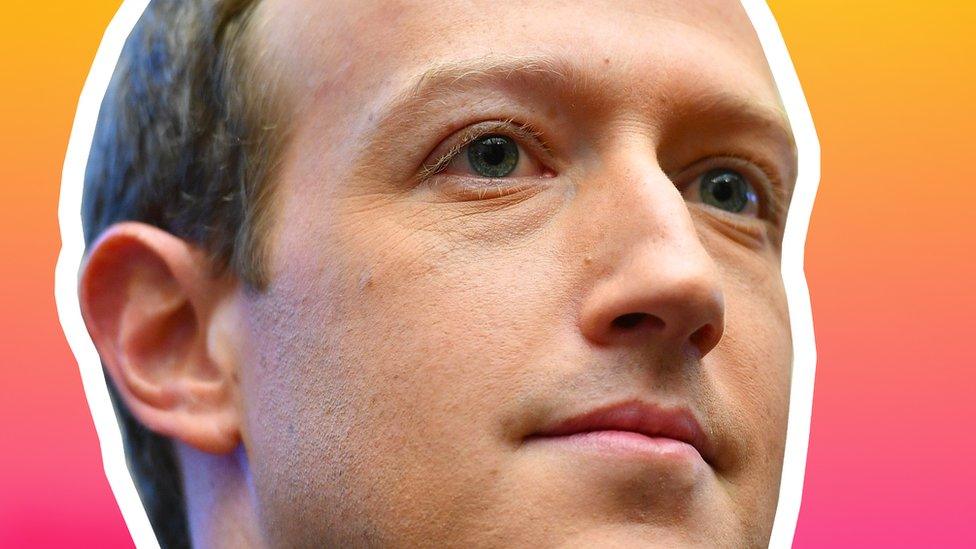Tech Tent: Facebook in turmoil over Trump
- Published

This has been a week in which many technology companies have agonised over the way they handle issues of race and politics.
On this week's Tech Tent podcast, we focus on the turmoil inside one company - Facebook - as some of its own staff rebel against a key policy decision.
Twitter has gone into battle with President Trump. Last week, it fact-checked two of his tweets and warned that another glorified violence.
Meanwhile, Mark Zuckerberg seemed determined to sit out this social media war, making it clear that Facebook would not be following a similar course.
But now he is facing a rebellion.
Some staff have made their dissatisfaction public, with the uproar so loud that the chief executive felt obliged to hold an all-hands meeting where he explained the painful process by which he had reached his decision.
It was a post in which the President had written: "when the looting starts, the shooting starts" that caused such disquiet.
The phrase was originally coined by Miami Police Chief Walter Headley in 1967, in reference to his aggressive policing policies in black neighbourhoods.
But in , Mark Zuckerberg told staff that, while it was "clearly a troubling historical statement and reference", after talking to lots of people, he had decided "that that reference is clearly to aggressive policing - maybe excessive policing - but has no history of being read as a dog whistle for vigilante supporters to take justice into their own hands".
It does not feel as though the row over how Facebook polices its platform and the limits of free speech is over yet.
Every time the President posts something inflammatory, there will be more calls from inside and outside the company for Mark Zuckerberg to change course.
But Kara Swisher, technology columnist for the New York Times, tells Tech Tent that Facebook's policy is unlikely to change.
She says "you have to jump a high bar of vileness to get kicked off" the social networking site.
Part of Facebook's business model "is to create a lot of enragement and to, sort of, feed the beast of anger," she suggests.
Whether or not people disagree with Mr Zuckerberg's stance on President Trump's posts, Ms Swisher argues that Facebook will remain a dominant player because of its power in the advertising business.
"A lot of people over here are focusing on the First Amendment, when actually they should be focusing on a business model - where you have to play with Facebook, or not.
"They take enormous amounts of your data and don't tell you what they're doing with it, and make money off of it."
Potential trouble
It was the Cambridge Analytica scandal that first alerted many Facebook users to how central their data was to the company's wealth and power.
However, the current battle feels more significant, because of the levels of anger surrounding George Floyd's death.
But will it really cause damage to a business which has successfully weathered so many crises and whose share price has been hitting all-time highs lately?
Kara Swisher isn't betting on it: "They're the only game in town. Between them and Google, they control advertising."
Where she does see potential trouble ahead for Facebook, and other social media companies, is in moves around the world to make them liable for content published on their platforms.
Imagine if companies or individuals could sue for damages over some perceived harm caused by something posted on Facebook or Twitter.
Lawyers would love it, but it would be a huge threat to the finances of online businesses - so expect their lobbyists to be very busy over the next year in Washington, Brussels and London.
- Published2 June 2020